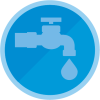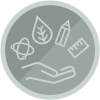Oceans International Education Project
Oceans is an international educational Project for students aged 12 to16. The objective is to make them realise that the sea is not the same around the world. This knowledge is achieved through their own observations and sharing their results with those of other participating schools. Communication will be done using Information and Communication Technologies (ICTs). The aim is to give value to the local knowledge to get an insight about how the Planet works globally.
The Oceans project requires fulfilling a minimum amount of information to share, but leaves space for students and teachers to go further in the parts of their interest. The aim is to enable the students to gain the knowledge, through their own discoveries, to read the landscape. So another day, at another location, just by looking at a coastal scene, they will be able to tell what processes are going on such as: productivity at sea, formation of beaches, types of fish to be expected, etc.; therefore, to contribute to an awaking of an environmental awareness.
To achieve this, the Oceans project must become an emotional experience by allowing students to express themselves freely using all free ICTs available on the internet, and adding extra contents of their interest to the proposed activities.
How does it work?
Students will have to do a series of activities; results will be shared with participating schools on the Oceans Project public blog.
The teachers of participating schools will have at their disposal a virtual space at the Moodle Projects of IEARN Pangea where they will find materials, resources and a forum. An organiser will also accompany them throughout the development of the Project, to ease the methodological and technological follow-up.
The surveys at the beach and port are the main source of information to complete the activities. Please take into consideration this need when formalising the enrolment.
Learning areas include: Science (Biology and Geology), English, Other languages, Art, Social science (History and Geography), Math, Technology



